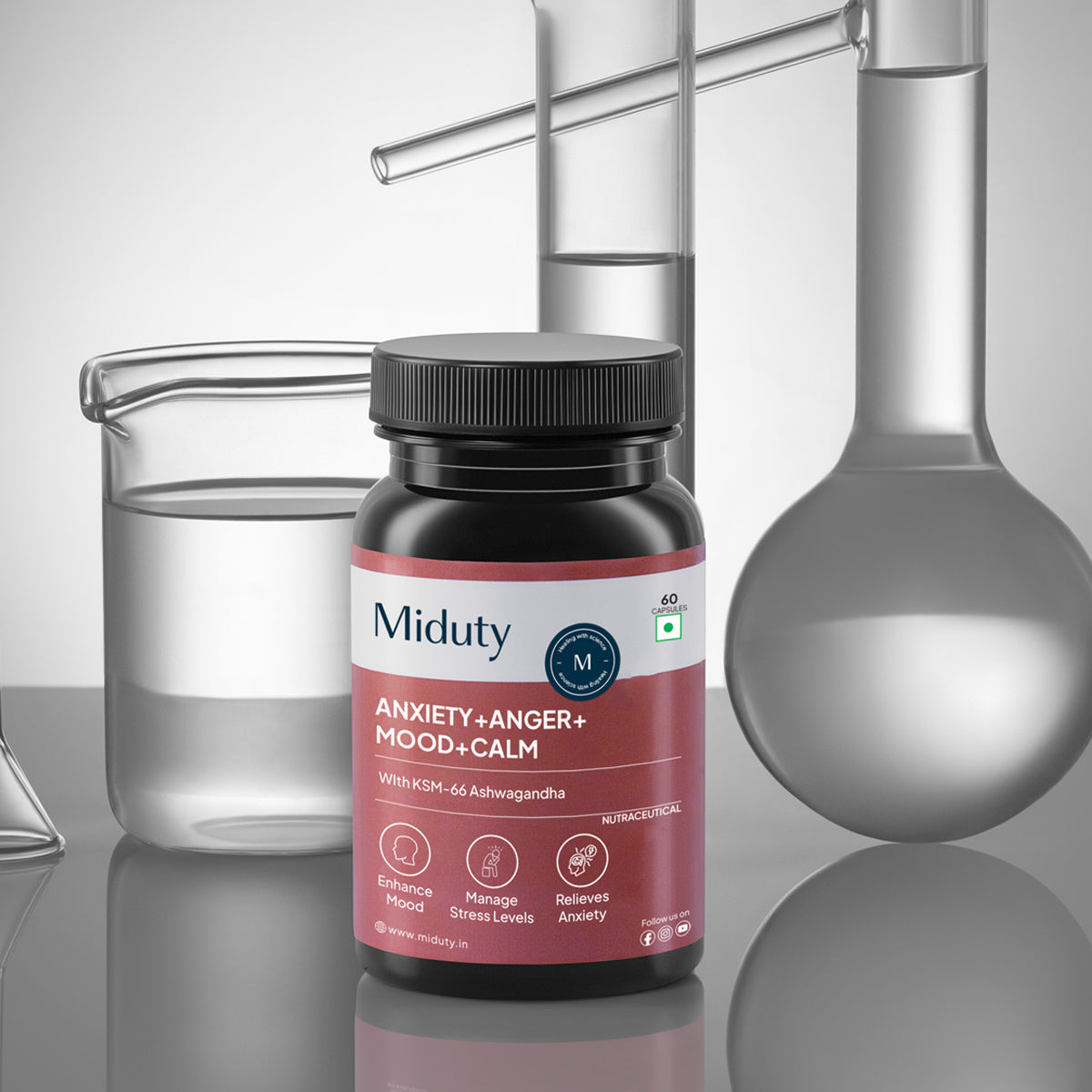
Top Health Benefits of Magnesium Backed by Science
Magnesium is one of the most overlooked yet essential nutrients in the human body. While it doesn't attract as much attention as protein, calcium, or vitamin D, its impact extends across hundreds of vital functions. This powerful mineral acts as a cofactor in more than 300 biochemical reactions, meaning it helps enzymes perform crucial tasks that keep the body functioning smoothly. From regulating your heartbeat and maintaining normal nerve function to supporting muscle relaxation and energy production, magnesium plays an indispensable role in overall health.
In this article, we'll take a closer look at how magnesium supports the body's everyday functions, explore the wide range of health benefits it offers, and discuss why magnesium supplementation can be a valuable addition for many people. We'll also examine the different forms of magnesium available, how much you should take, and important safety considerations to ensure you're getting the most out of this essential mineral.
Key Takeaways
1. Magnesium is essential for hundreds of body functions. Magnesium supports over 300 biochemical reactions in the body, including energy production, muscle and nerve function, heartbeat regulation, and bone health. Despite its importance, it's one of the most overlooked nutrients in the modern diet.
2. Adequate magnesium intake supports overall wellness. Getting enough magnesium can help stabilize blood sugar levels, support heart and vascular health, strengthen bones, and reduce the frequency of migraines. It also contributes to better mood, lower anxiety, and improved sleep quality.
3. Magnesium supplements can fill dietary gaps. Because processed foods often lack magnesium, many people don't get enough from diet alone. Supplements can help correct deficiencies, reduce cramps, support muscle recovery, and enhance relaxation—especially for those under stress or with absorption issues.
4. Choosing the right form matters. Different forms of magnesium serve different needs: magnesium glycinate and citrate are well absorbed and gentle on the stomach, while magnesium oxide is less absorbable and may cause digestive discomfort. Selecting the right form ensures better results and fewer side effects.
5. Safe dosage and consistency are key. Most adults need 310–420 mg of magnesium per day, with supplements providing about 100–200 mg if diet falls short. Taking magnesium with food, splitting doses, and being consistent helps maximize benefits while avoiding side effects like diarrhea or nausea.
What Magnesium Does in the Body?
To appreciate magnesium's benefits, it helps to understand its role in the body. Magnesium acts as a biochemical cofactor, meaning it helps enzymes do their jobs. Many of these enzymes are essential for producing energy, synthesizing DNA and proteins, and maintaining cell health.
It's also vital for muscle contraction and nerve function. Magnesium regulates calcium and potassium within cells, allowing muscles — including the heart — to contract and relax properly.
About 60% of the magnesium in your body is stored in bones, where it helps maintain bone structure and density alongside calcium and vitamin D. Magnesium also supports heart health, helps regulate blood pressure and blood sugar, assists in neurotransmitter balance, and plays a role in inflammation control.
When your magnesium intake is too low, even slightly, you might experience muscle cramps, fatigue, anxiety, poor sleep, or irregular heart rhythms — subtle signs that your body needs more of this crucial mineral.
Health Benefits of Magnesium
Magnesium impacts nearly every system in the body. Let's explore its most important benefits.
1. Supports Healthy Blood Sugar and Metabolism
Magnesium helps regulate insulin and glucose metabolism, which makes it essential for maintaining stable blood sugar levels. Studies have shown that people with higher magnesium intake have a lower risk of developing type 2 diabetes.
For those already managing insulin resistance or metabolic syndrome, magnesium supplementation may modestly improve insulin sensitivity and fasting glucose levels. While the effect isn't dramatic for everyone, it's clear that magnesium plays a protective role in long-term metabolic health. [1]
2. Promotes Heart and Vascular Health
Magnesium helps keep the heart rhythm steady and supports the relaxation of blood vessels, contributing to healthy blood pressure. People who consume adequate magnesium from diet or supplements tend to have lower risks of high blood pressure, stroke, and heart disease.
It can also improve cholesterol levels by helping reduce LDL (bad cholesterol) and increase HDL (good cholesterol). While magnesium alone isn't a replacement for other heart-healthy habits, it's a key part of overall cardiovascular well-being. [2]
3. Strengthens Bones and Prevents Osteoporosis
Many people associate calcium and vitamin D with bone health, but magnesium is equally important. It plays a critical role in bone formation and helps regulate the balance of calcium and phosphorus — the minerals that make up bone tissue.
Low magnesium intake is linked to lower bone density and a greater risk of fractures, especially in older adults and postmenopausal women. Supplementing with magnesium, along with calcium and vitamin D, may improve bone strength and reduce the risk of osteoporosis over time. [3]
4. Helps Reduce Migraine Frequency
If you suffer from migraines, magnesium might help. Research shows that people who experience migraines often have lower levels of magnesium.
Supplementing with magnesium — particularly forms like magnesium citrate or glycinate may reduce the frequency and intensity of migraine attacks. It's especially helpful for people who experience migraines with aura or menstrual-related migraines. [4]
5. Improves Mood, Reduces Anxiety, and Enhances Sleep
Magnesium plays a major role in brain chemistry and mood regulation. It supports the production of neurotransmitters such as serotonin and helps control the stress response by regulating the hypothalamic-pituitary-adrenal (HPA) axis.
Low magnesium levels are associated with higher rates of anxiety, irritability, and depression. Supplementation has been shown to reduce mild to moderate anxiety and promote a greater sense of calm.
When it comes to sleep, magnesium helps activate the parasympathetic nervous system — the system responsible for relaxation. It also interacts with GABA, a neurotransmitter that promotes restful sleep. Many people find magnesium helpful for reducing nighttime restlessness or muscle cramps, which can interfere with sleep.
6. Eases PMS and Menstrual Cramps
Magnesium is particularly beneficial for women's health. It helps relax uterine muscles and regulate hormonal fluctuations, which can reduce common PMS symptoms such as bloating, mood swings, irritability, and cramps.
Women with low magnesium intake often experience more intense menstrual pain, and supplementation may provide relief. In addition, magnesium supports mood balance during the menstrual cycle by stabilizing serotonin levels.
7. Reduces Inflammation and Oxidative Stress
Magnesium has anti-inflammatory properties and plays a role in the body's antioxidant defense systems. Low magnesium levels are linked to chronic inflammation, which contributes to conditions such as heart disease, arthritis, and diabetes.
By maintaining adequate magnesium levels, you can help reduce inflammation and oxidative stress, keeping your body's systems balanced and resilient.
Magnesium Supplement Benefits: When and Why to Take Them
Magnesium is found in many foods — especially leafy greens, nuts, seeds, legumes, and whole grains. However, modern diets that rely heavily on processed foods often fall short. Cooking, refining, and food processing can strip magnesium from natural sources, leading to widespread mild deficiencies.
In some cases, supplementation becomes a practical solution.
You might consider a magnesium supplement if you:
- Don't eat many magnesium-rich foods
- Experience frequent muscle cramps or poor sleep
- Have a condition that affects absorption (such as Crohn's disease or celiac disease)
- Take medications like diuretics or proton pump inhibitors, which deplete magnesium
- Are under high stress, which increases magnesium loss through urine
- Have high levels of physical activity or sweating
Benefits of Magnesium Supplements
When dietary sources aren't enough, supplements can offer specific advantages:
- They help correct mild magnesium deficiencies efficiently
- They provide targeted therapeutic doses for conditions such as migraines, PMS, or insomnia
- They support muscle recovery and reduce cramps in athletes
- They can help stabilize mood and improve sleep quality in people under chronic stress
That said, magnesium supplements should be used to complement, not replace, a nutrient-rich diet.
Forms of Magnesium Supplements
There are many forms of magnesium, each with slightly different properties and benefits:
1. Magnesium citrate – well absorbed and may also help relieve mild constipation
2. Magnesium glycinate (bisglycinate) – gentle on the stomach and excellent for mood and sleep support
3. Magnesium oxide – contains a high amount of elemental magnesium but is less absorbable and may cause digestive discomfort
4. Magnesium malate – often used to support energy production and reduce fatigue
5. Magnesium threonate – believed to cross the blood-brain barrier, potentially supporting cognitive health
For most people, magnesium glycinate or citrate are the best all-around options. They're well tolerated and provide good absorption.
Recommended Dosage and Tips
The recommended daily intake (RDA) for magnesium depends on age and gender:
- Adult men: 400–420 mg per day
- Adult women: 310–320 mg per day
- Pregnant or breastfeeding women: slightly higher, around 350–360 mg per day
If you're getting part of your magnesium from food, you usually only need 100–200 mg per day from supplements.
Tips for Taking Magnesium
- Take magnesium with food to improve absorption and reduce stomach upset
- Split higher doses into two smaller ones — morning and evening — to avoid diarrhea
- Avoid taking magnesium at the same time as certain medications (antibiotics, thyroid medications, or bisphosphonates) since it can interfere with absorption
- Be consistent; benefits build up gradually over time
Safety and Side Effects
Magnesium supplementation is generally safe for healthy adults when taken within recommended limits. The most common side effect is mild diarrhea, especially with higher doses or poorly absorbed forms like magnesium oxide.
People with kidney problems should be cautious, as their bodies may not excrete excess magnesium efficiently. Extremely high doses from supplements can cause nausea, low blood pressure, or irregular heartbeat, but this is rare and usually occurs only with medical overdoses.
Always consult your healthcare provider before starting a supplement, especially if you have existing health conditions or take medications.
Conclusion
Magnesium might not make daily headlines, but it's one of the most essential minerals for overall health. From maintaining steady blood sugar and supporting heart health to improving mood, sleep, and muscle function, magnesium quietly keeps your body running smoothly.
While most people should aim to get magnesium through food first, supplements can be a convenient and effective way to bridge nutritional gaps, especially in today's fast-paced, stress-filled lifestyles.
Whether you're looking to sleep better, recover faster, or simply boost your well-being, magnesium deserves a permanent spot on your wellness radar.
FAQ's on Magnesium Health Benefits -
Q1 - What is the main benefit of magnesium?
The main benefit of magnesium is that it supports hundreds of essential bodily functions, including muscle and nerve activity, energy production, and bone health. It also helps regulate blood pressure, heart rhythm, and sleep quality.
Q2 - What are the 5 main functions of magnesium?
The five main functions of magnesium are to support normal nerve and muscle function, regulate blood glucose levels, promote bone health, help control blood pressure, and assist in the production of energy and DNA/RNA.
Q3 - What happens to your body when you take magnesium?
When you take magnesium, it helps your body relax muscles, support nerve function, regulate blood pressure and blood sugar, and promote better sleep and energy production.
Q4 - What are the benefits of chelated magnesium?
Chelated magnesium provides enhanced absorption, helping to support muscle comfort and function, bone strength, heart health, energy production, and better sleep quality. By binding magnesium to amino acids, chelation increases its bioavailability, allowing the body to use the mineral more efficiently.
Q5 - Who needs magnesium the most?
Certain groups of people are more likely to have low magnesium levels, including those with gastrointestinal conditions such as Crohn's disease or celiac disease, individuals with type 2 diabetes, people with long-term alcoholism, and older adults.
Q6 - Does magnesium help sleep?
Yes, magnesium can help improve sleep by calming the nervous system, promoting relaxation, and potentially boosting melatonin and GABA levels, which support a more restful night's sleep.
References














